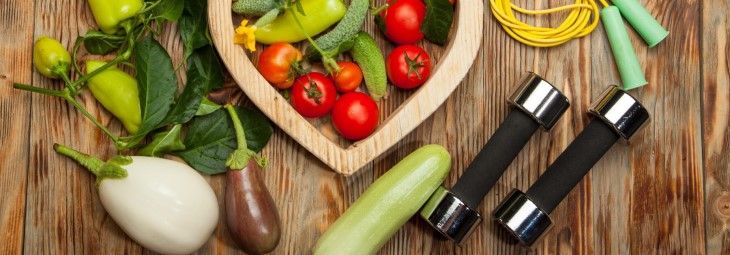
Good nutrition is half the battle when training for sports.
During physical exercise, the body needs energy, protein, vitamins, and minerals. All of these come from food.
Carbs are very important for athletes when training for sports, including bodybuilding. They supply energy, replenish glycogen stores, and help in muscle building. While carbs are great, you can still thrive as a keto bodybuilder without eating too much of them.
In this article, you will get tips on building muscle and bulking, the benefits and drawbacks of bodybuilding on a low-carb diet, and a free ketogenic bodybuilding meal plan for a day.
Keto for bodybuilding is a low-carb high-fat diet with the goal of building muscle.
The ketogenic diet is famous for promoting fat loss, but not many know about its ability to increase muscle mass. Some even have the misconception that low-carb diets result in muscle loss (this only happens when your protein intake is too low).
The most important nutrient for muscle growth and bulking is protein. Low-carb diets don’t restrict protein. In fact, it is encouraged that you eat enough protein while on the diet.
So, can you gain muscle on keto?
Yes, you most definitely can. Keto macros for bodybuilding do not differ so much from a regular ketogenic diet. The two main differences are higher protein and more calories.
If you are a bodybuilder, you require more protein to repair your muscles after strength training. You also need more calories to sustain yourself during exercise and to keep up with your increased metabolism.
Many of these drawbacks can be solved by following the diet very carefully. If symptoms appear anyway, supplements can help. Some of the supplements keto diet bodybuilding calls for include protein and electrolytes (magnesium, potassium, and sodium).
It is true that bodybuilding on keto will not be a breeze. However, there are some tips you can use to make the experience as enjoyable as possible.
If you are still figuring out what is the best way to gain muscle and bulk up on keto, these tips can help you achieve that goal.
Not all foods make the cut on keto. High-carb foods should be avoided. Some of the foods you will have to eliminate include:
In place of these, you will focus on low-carb high-fat foods. You will also have to incorporate high-protein foods at all meals and snacks. Some of the protein-rich foods you should eat on a keto diet for bodybuilding include:
Other high-fat ketogenic foods include:
A typical pre-workout meal should be rich in carbs and protein. Obviously, carbs are out for keto. Therefore, a keto-friendly pre workout meal replaces carbs with fat and maintains the protein. An example of a good meal would be Greek yogurt and strawberries.
Post workout, you want to focus on recovery. Fluids and electrolytes are extremely important for hydration. A keto post workout meal should also provide energy and more protein to aid muscle recovery.
Meats will be a staple in your diet. You will need to stock up on different types and cuts of meat for some variety.
Different types of fish and seafood also provide both protein and fat.
Do not forget about nuts and seeds as well.
Finally, you will need more high-fat foods to help you achieve ketosis.
While we want all or most of our nutrients to come from food, supplements can be a great tool for achieving your goals. Some of the keto-friendly supplements you can buy are:
Keto bulk meals are simply regular low-carb high-fat meals with a bump in their protein content. Below is a full day of keto bodybuilding meals.
Calories: 2,468 | Macros: 24.2 g net carbs, 201.9 g protein, and 151.8 g fat.
If you still have some questions, read on as we cover the common topics you might be wondering about.
HIIT can be challenging on a low-carb diet plan, especially in the beginning. However, as your body becomes fat-adapted, it should become easier to increase the intensity of your exercise.
In place of HIIT, you can engage in medium-intensity exercises and strength training.
Yes, you can.
If the carbs you are eating are not sustaining you through your workouts, you can consider increasing your carb intake. You may also adopt different types of ketogenic diets that support more intense workouts:
Yes, it is possible.
However, it may be challenging. Animal foods are the best sources of protein. While plants can also provide protein, it is usually less in quantity and these sources are also higher in carbs.
High-protein low-carb snacks include beef jerky, pork rinds, nuts, seeds, Greek yogurt, nut butter, hard-boiled eggs, cheese, protein bars, and chia pudding.
To build muscle, you need to eat 0.5 - 1 gram per pound of body weight or 1.2 - 2.2 grams of protein per kilogram of body weight per day.
While on keto, it is important to work out before and/or after meals to provide or replenish energy for the body.